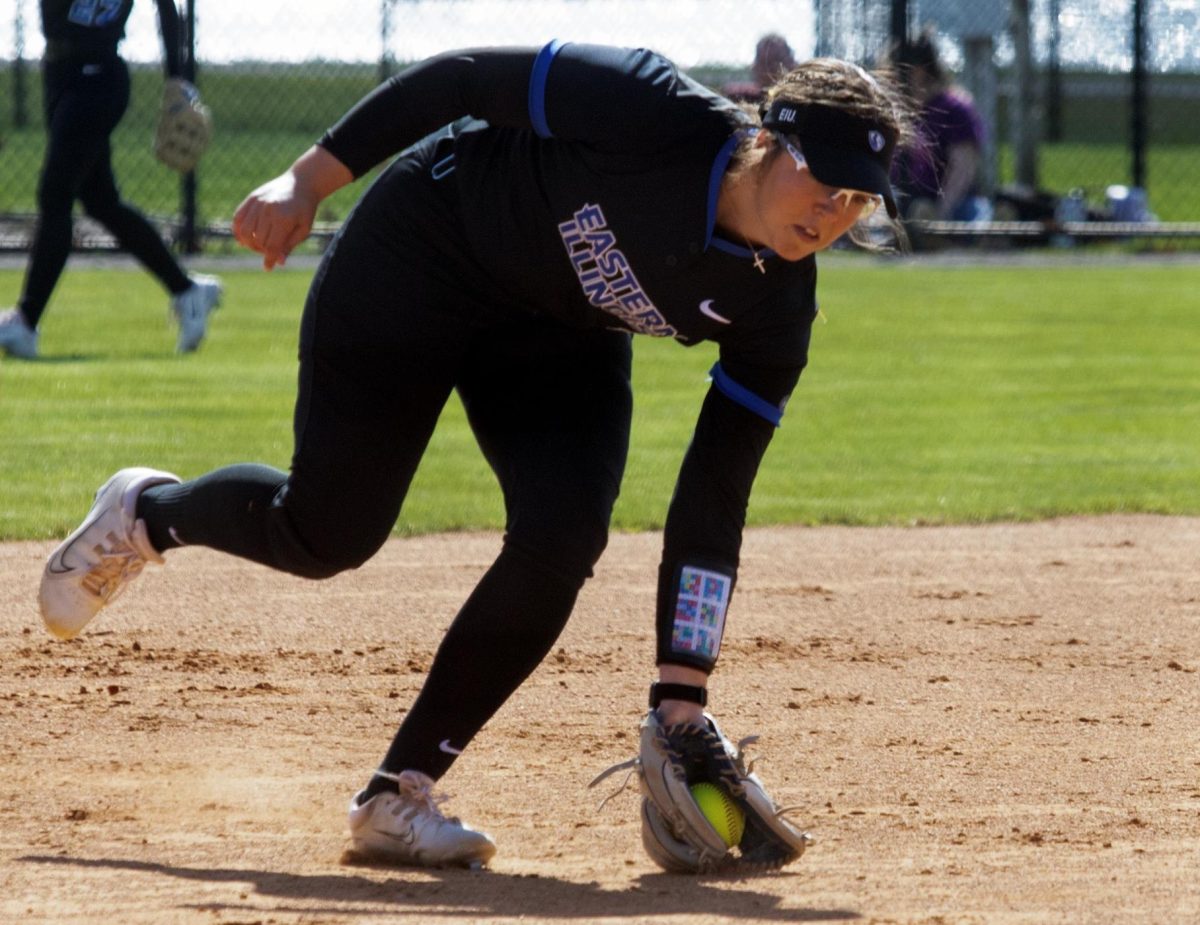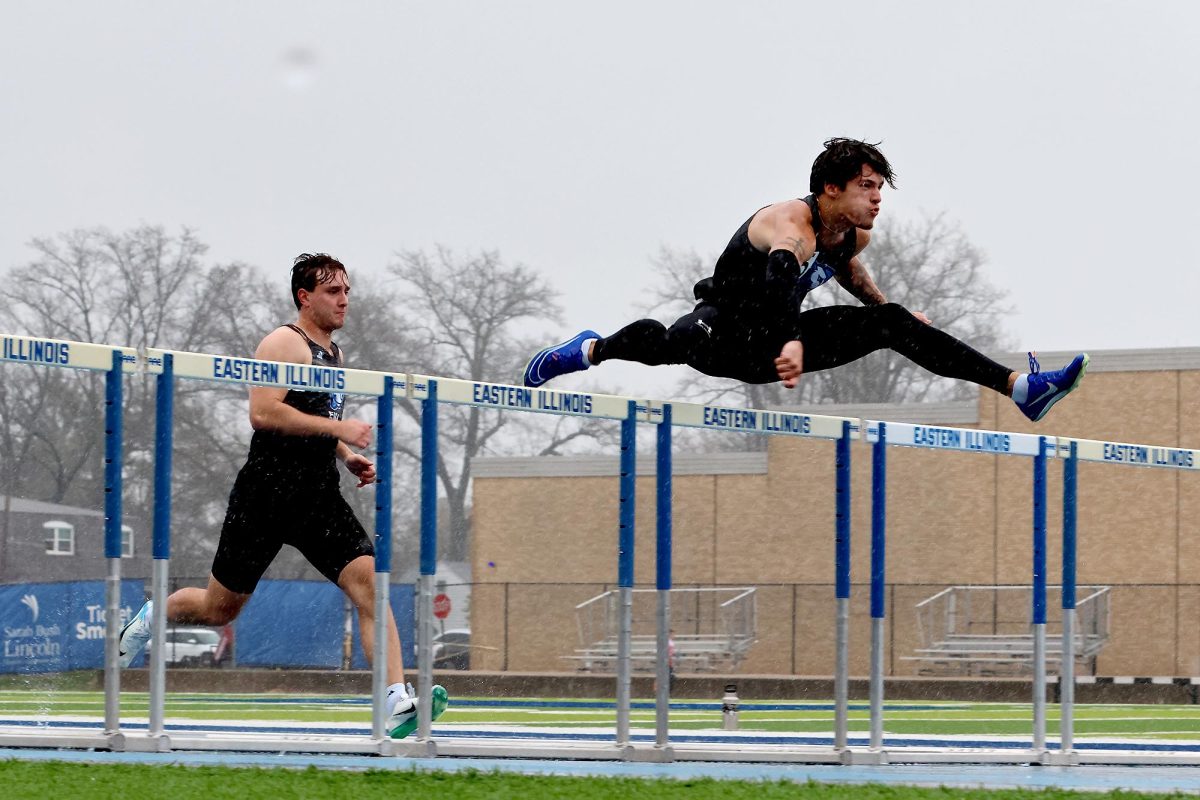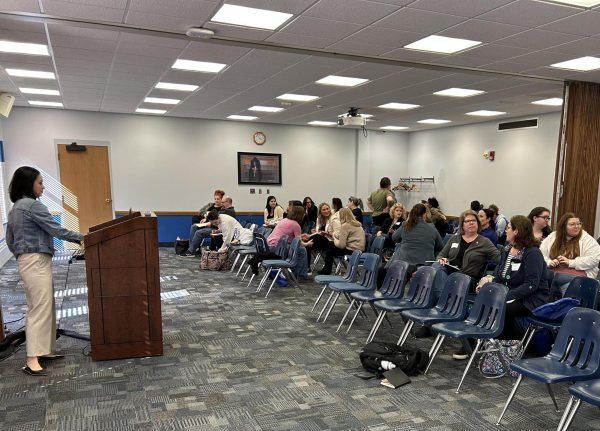Critical thinking workshop reviews ‘high levels of mediocrity,’ responsible citizenship workshop to be conducted Monday
The Council on Academic Affairs continued its series of learning goals workshops by presenting an overview of critical thinking goals to faculty and staff on Friday.
Jill Fahy, a communication disorders and sciences professor, conducted the first half of the two-hour meeting presenting information the critical thinking CAA subcommittee has compiled over the last year.
“Any entity evaluates itself,” Fahy said. “Any entity, organization, business, university, we evaluate what we are doing, how we are doing it well; we want to know what the end outcome is.”
After presenting the overview of the goals of critical thinking, Fahy then presented to the attendees why critical thinking is a major step in the learning process at Eastern.
“To that end, Eastern also does engage in all manner of different type of assessments and there has been some long-term concern regarding what it is we are seeing in some of our patterns and trends,” Fahy said. “Our electronic writing portfolio and the ability to construct and analyze arguments has been a fairly consistent area of weakness so this is worrisome.”
Fahy continued by saying about one-third of the electronic writing portfolio papers “appear to only be asking their students to summarize information.”
“If that is the level of demand that we put forth, it perhaps doesn’t offer that much of an opportunity for a student to practice high levels of thinking,” Fahy said.
Fahy said critical thinking is important for Eastern students because of trends on recent Watson-Glaser Critical Thinking Appraisals conducted over the “past numerous years.”
“Our students perform at about, I don’t know what you want to call 24.9 out of 40 on a composite score–high levels of mediocrity, I might say,” Fahy said. “And this bothers me personally.”
Rebecca Throneburg, a communication disorders and sciences professor, added that the score of 24.9 is not much above the level of chance.
“Half to three-fourths of the questions on the Watson-Glasier are a 50-50 opportunity – its true/false, it’s an ‘A’ or a ‘B’ choice,” Throneburg said. If you randomly close your eyes and guess, you get about 50 percent right anyway. Our scores are not much above the level of chance.”
Fahy said that before coming to Eastern, she worked with patients who has acquired a type of brain injury and were trying to function “with a brain that could no longer think.”
“My job was to elicit, devise, foster thinking day in and day out, and the question was always, what level will you achieve. So, I come to this university and I love teaching, so for me, I would like to see our scores look better. I think our students are capable of thinking at a higher level.”
The ability to construct an argument, as demonstrated by the electronic writing portfolio and other critical thinking tests, is waning, Fahy said.
“Our students have had a number of years where, between freshmen and senior years, we show no growth in the ability to construct an argument,” Fahy said.
After discussing critical thinking for the first half of the meeting, the group broke up into four subgroups to discuss different aspect of critical thinking and how to integrate critical thinking into the curriculum at Eastern more reverently.
The video of the meeting, as well as all handouts for the meeting, are available online for further review.
The next in the series of CAA learning goals workshops, highlighting responsible citizenship, will be held at 2 p.m. Monday in the Arcola-Tuscola Room of the Martin Luther King Jr. University Union.
Jack Cruikshank can be reached at 581-2812 or jdcruikshank@eiu.edu.











![[Thumbnail Edition] Charleston High School sophomore Railyn Cox pitches the ball during Charleston's 8-7 win over Flora High School on Monday, March 31.](https://www.dailyeasternnews.com/wp-content/uploads/2025/04/SBHS_01_O-1-e1743982413843-1200x1023.jpg)


![[Thumbnail Edition] Senior Foward Macy McGlone, getsw the ball and gets the point during the first half of the game aginst Western Illinois University,, Eastern Illinois University Lost to Western Illinois University Thursday March 6 20205, 78-75 EIU lost making it the end of their season](https://www.dailyeasternnews.com/wp-content/uploads/2025/03/WBB_OVC_03_O-1-e1743361637111-1200x614.jpg)





















![[Thumbnail Edition] Eastern Illinois softball senior infielder Briana Gonzalez resetting in the batter's box after a pitch at Williams Field during Eastern’s first game against Southeast Missouri State as Eastern split the games as Eastern lost the first game 3-0 and won the second 8-5 on March 28.](https://www.dailyeasternnews.com/wp-content/uploads/2025/04/SBSEMO_11_O-1-e1743993806746-1200x692.jpg)


















![The Weeklings lead guitarist John Merjave [Left] and guitarist Bob Burger [Right] perform "I Am the Walrus" at The Weeklings Beatles Bash concert in the Dvorak Concert Hall on Saturday.](https://www.dailyeasternnews.com/wp-content/uploads/2025/03/WL_01_O-1200x900.jpg)
















